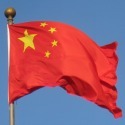
A new survey from the Wall Street analysts at New Street Research indicates plenty of demand among Chinese consumers for 5G. However, the analysts concluded that Chinese mobile network operators may not be well positioned to actually profit from that demand.
New Street Research's survey of roughly 1,000 Chinese consumers across major cities in the country found that around 3% of respondents currently subscribe to 5G services. The analysts noted that this figure roughly aligns with data provided by the country's regulators.
But the firm's survey indicates that percentages could spike in the coming months.
"30% of mobile customers intend to migrate [to 5G] in the next 6 months and 50% in the next 12 months, much higher than what we model or the industry targets," the New Street analysts wrote in the report. "There is likely to be some overestimation by consumers, but this suggests the demand for 5G is fundamentally high."
The problem, they added, is operators' 5G pricing. Chinese providers are generally offering far more data on 5G plans than 4G plans, but aren't charging much more for all that data.
Specifically, the analysts found that 5G plans tend to offer 40% more data than 4G plans, but on average only cost 11% more. This, the analysts noted, implies that operators are charging 21% less per gigabyte on 5G compared with 4G.
"5G should bring some upside from a revenue standpoint on an absolute basis, but this upside is limited," they wrote. "On a price per GB basis, 5G even brings prices down. We do not think operators will benefit much overall from 5G from a revenue uplift standpoint (and even less from a profitability standpoint)."
Further, the analysts noted that Chinese consumers typically consume only half of their allotted monthly data anyway, meaning "it might be difficult to get data monetisation."
The analysts argued that these figures could raise concerns among Chinese operators like China Unicom, China Mobile and China Telecom as they fork out billions of Renminbi for what will eventually be millions of 5G transmitters.
"We think that 5G is a net negative and the limited revenue upside combined with opex/capex pressure should impact profitability and earnings," they concluded.
China's operators aren't the only ones facing a 5G monetization quandary. For example, AT&T in the US is not charging extra for 5G, but has instead included the service in its most expensive unlimited plans. The operator's goal is to entice customers to subscribe to more expensive service plans. But AT&T officials have said they expect 5G sales among enterprise customers to potentially be a bigger opportunity than selling it to consumers.
Whether those hopes pan out still remains to be seen.
— Mike Dano, Editorial Director, 5G & Mobile Strategies, Light Reading | @mikeddano
Read more about:
AsiaAbout the Author(s)
You May Also Like




_International_Software_Products.jpeg?width=300&auto=webp&quality=80&disable=upscale)







